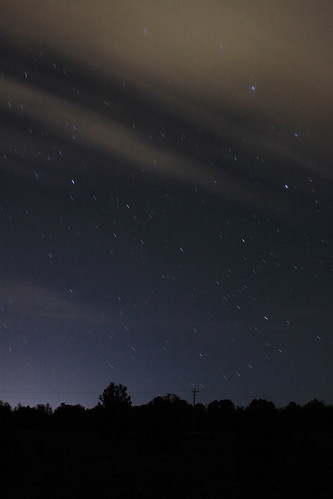Okay, so over the last weekend I was at a conference in Atlanta to participate in a panel about my friend's dissertation project (because I was one of her data sources) and catch some panels on social justice and the composition classroom. Last Thursday, as two of my buddies and myself pulled into town, I was a weary, exhausted, nervous wreck. And I hadn't eaten since 11 AM. By the time I had checked in to our massive, creepy-looking hotel (I felt like I was standing inside a giant pink ribcage like in the end of
Pinocchio) and actually found my room, I had missed every dinner invitation and was starving. Actually, I had low blood sugar and was about to become a dizzy pile of goo.
I didn't have a clue about where to find food, but as I was stumbling out the door to find something, anything to eat, I ran into my friend "Althea." She was just getting back from one of the dinner invites I had missed. She saw my glazed eyes and took over. "We have to get you some food
fast," she said, and she grabbed me by the arm and marched me out the door.
Now, there's something you should know about both myself and "Althea." I grew up as an incurable tomboy and to this day don't really like dressing up "femmy," so to speak. My hair is currently an inch and a half long. Even on a day I dress up I can run the risk of "slipping under the gaydar," so to speak. On that night I was in travel clothes: blue jeans, hoodie, and my old, comfy Doc Marten's combat boots. "Althea," in contrast, is old Southern society and was raised to be a debutante. She was dressed in a sun dress and her "rhetorical pearls," as she likes to call them, and she'd had one mimosa too many at dinner. On our way into the nearest takeout place-- a pub, as it turned out-- Althea clung to my arm, just a little tipsy, and chatted amicably nonstop. I didn't think a darn thing about it, honestly. This is just who Althea is.
We ordered my food and walked out of the bar again, but this time I was getting really woozy from lack of food, so Althea grabbed my arm again to keep me upright. She put her head on my arm for a second. At that moment, I looked up at one of the patrons sitting at the bar. He was watching us. Then he gave me "the look." He glared at us like we weren't human.
At that exactly that same moment, Althea giggled and blurted out, "I love you, Jackrabbit!" That look on his face intensified to something like pure hate. Even though I was a bit dizzy, I immediately decided to "own" it. I gave him a nasty smile and tromped out the door with my "girlfriend" on my arm. I don't really know if Althea had noticed, and I sure wasn't going to tell her. Pearls or no pearls, she would have seriously gotten in his face for doing that.
I didn't have time to think about it until I had some food in my stomach and could finally think straight. On the one hand, it's not like people haven't "wondered" about the girl who likes to wear boots and pick up frogs before. I'm used to speculation, and I never cared; I know who I am, and I'm comfortable being the butch-y straight girl. What was different was the value judgment that came attached this time. That look was a complete rejection of me as a human being. It made me feel a little naked and totally pissed off. Nobody,
nobody has the right to judge like that, I fumed.
And then I wondered what it would be like to feel that feeling for
every single day of your life as an LGBT person. My mind was a little blown. It's one thing to know something mentally and something else entirely to feel it. And, in a weird way, I was kind of thankful that, for my six seconds, I had just a tiny taste of what it's like so I could better understand what my friends are facing.
A day later, I was slouched on a couch next to the pool with my frind "Pam," and I told her this same story while Althea was soaking her feet in the shallow end. "How on earth do you respond to something like that?" I asked her. "Pam," who's married and ex-roller derby, also knew what I was talking about; she got a wicked grin on her face.
"There's only way to respond, Jackrabbit," she told me. "You answer, back, 'I love you too, babe.' Then you waltz out the door." I cackled at the mental image.
Ya know what? She was
right. I don't think it could have been any more appropriate than that.








